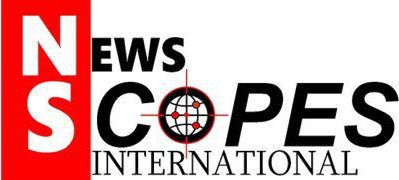فرصة عمل لدى I'mpossible organisation Ngo: مطلوب مستشار بحوث – Research consultant
Interested candidates are invited to submit their CV to admin@iympossible.ngo by the 30th of September. Please make sure to include the position title in your email subject. CVs without the subject line including the Position Title will not be considered. Only short-listed candidates will be contacted.
The consultant is responsible of developing a Research to assess the knowledge of Akkar community on Sexual and Reproductive Health and Rights (SRHR), identifying key challenges and opportunities for promoting SRHR in the community which can be used to guide the development of SRHR programs and policies, and provide recommendations for Improved attitudes towards SRHR, including increased acceptance of diverse sexual and gender identities, and reduced stigma and discrimination related to sex and sexuality.
The consultant will be responsible and accountable for the following:
1. Develop the methodology for the research
- Describe actions to be taken to answer the research question (How will the data be collected? How will it be analyzed?
- Describe the rationale for the application of the selected procedures/techniques used to identify, select, process, and analyze collected information.
- Provide a justification for subject selection and sampling procedure.
- Indicate how the approach fits the overall research design.
- Discuss anticipated problems, potential limitations and steps to overcome them.
- Develop the data collection tools (questionnaire/survey) making sure that questions are well-constructed, the language is specific, the wording is neutral, the suggested responses are relevant and Appropriate, and the questions collect the needed information
2. Data Collection:
- Ensure that data collection methods are appropriate, such as surveys, interviews, focus groups, and document reviews.
- Collect data from a diverse and representative sample of the Akkar community.
3. Data Cleaning and Organization:
- Prepare the collected data by cleaning and organizing it to eliminate errors and inconsistencies.
- Assign unique identifiers to each data point to maintain anonymity.
4. Quantitative Analysis:
- Use statistical software to analyze quantitative data. This may involve calculating percentages, averages, and conducting statistical tests to identify significant trends or correlations.
5. Qualitative Analysis:
- Transcribe and code qualitative data from interviews and focus groups.
- Identify common themes, patterns, and recurring issues related to SRHR knowledge, challenges, opportunities, attitudes, and stigma.
- Use qualitative analysis software if available to facilitate the process.
6. Data Visualization:
- Create visual aids such as charts, graphs, and tables to represent quantitative data and highlight key findings.
- Develop thematic maps or diagrams to illustrate qualitative findings.
7. Thematic Analysis:
- Identify overarching themes and sub-themes that emerge from the data.
- Organize these themes in a logical order, starting with knowledge assessment and moving on to challenges, opportunities, attitudes, and stigma.
8. Interpretation and Synthesis:
- Interpret the findings in the context of the Akkar community's SRHR situation.
- Consider the implications of the knowledge gaps, challenges, and opportunities identified.
9. Recommendations:
- Based on the analysis, formulate actionable recommendations for improving SRHR in the Akkar community.
10. Report Writing:
- Compile the research findings, analysis, and recommendations into a comprehensive report.
- Include an executive summary, methodology, data analysis, and conclusion sections.







